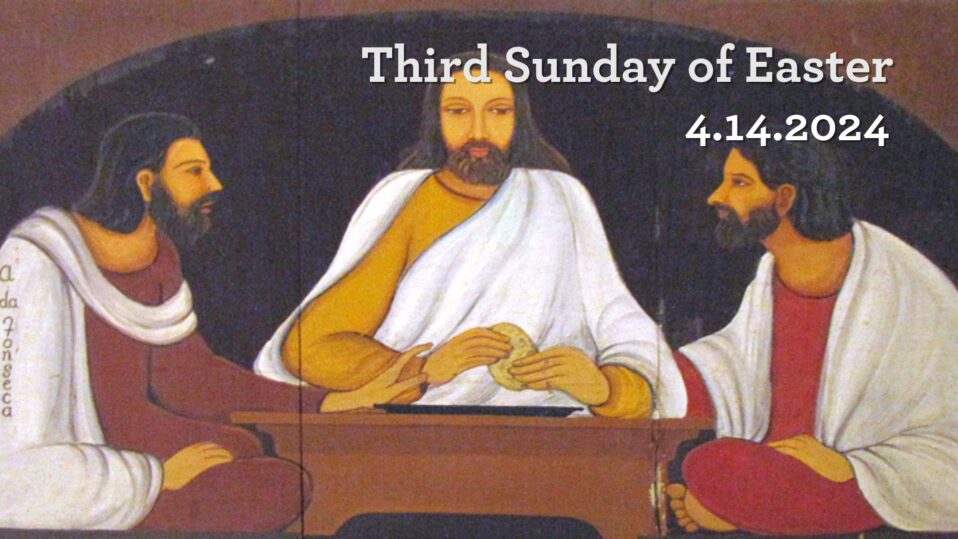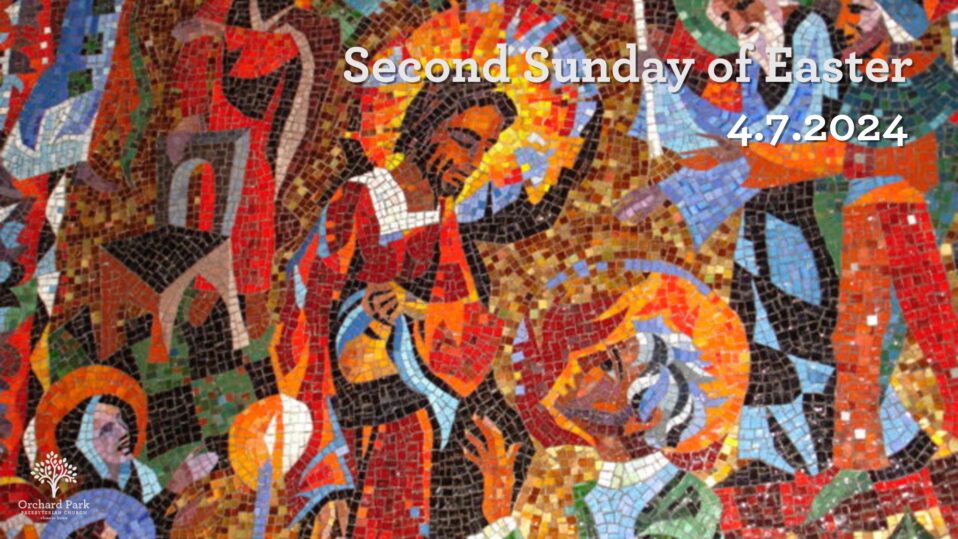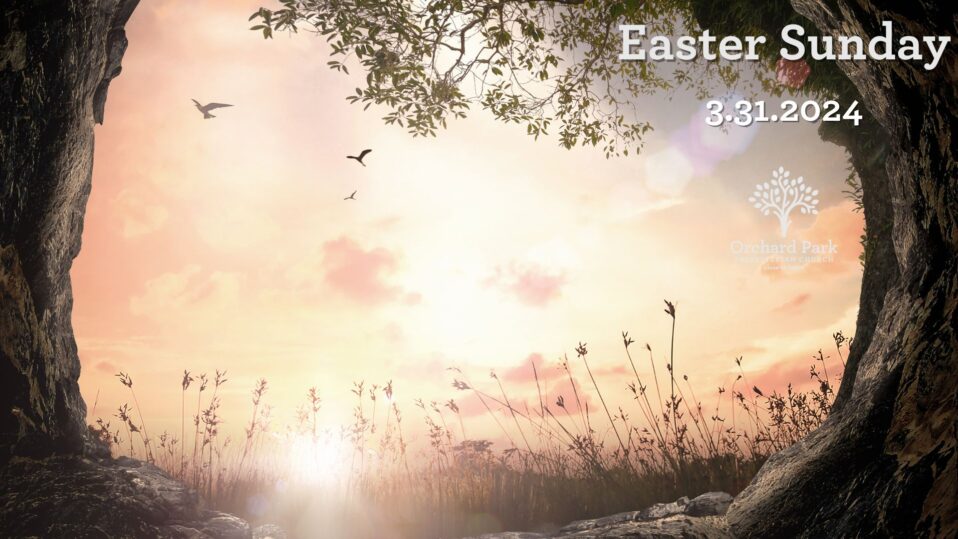Jesus asks the question this morning, “why are you anxious?” Before we look forward, I want to look backwards, and ask the question, “Why did Jesus ask that question?” “What made Jesus think people were anxious and what were they anxious about?”
It begins with some sort of conflict between two brothers. Someone in the crowd shouts out to Jesus, “Teacher, tell my brother to divide the inheritance with me.” And instead of getting involved he responds, “Man, who appointed me a judge or an arbiter between you?” 15
He then provides a warning and a lesson. Here’s the warning. “Watch out! Be on your guard against all kinds of greed; life does not consist in an abundance of possessions.”
16 And he told them this parable: “The ground of a certain rich man yielded an abundant harvest. 17 He thought to himself, ‘What shall I do? I have no place to store my crops.’
18 “Then he said, ‘This is what I’ll do. I will tear down my barns and build bigger ones, and there I will store my surplus grain. 19 And I’ll say to myself, “You have plenty of grain laid up for many years. Take life easy; eat, drink and be merry.”’
20 “But God said to him, ‘You fool! This very night your life will be demanded from you. Then who will get what you have prepared for yourself?’
21 “This is how it will be with whoever stores up things for themselves but is not rich toward God.”
Right after he tells them this story, he asks, why are you anxious. – Why are you anxious like the rich man who tore down barns and built bigger one? The anxiety that Jesus is talking about here, isn’t anxiety in the broad sense, but specifically, worry about having enough.
Jesus takes the opportunity to respond to the person’s request by providing a four-part sermon on how to think about possessions and financial security.
First, he says what not to do – he says do not worry.
Second, he says rather, consider. Consider the ravens. Consider the lilies
Third he says to seek. Seek the kingdom of God.
And then he goes back and closes his speech with another do not. Do not be afraid.
So, let’s begin. Jesus says do not worry about your possessions, about what you will eat or what you will wear. Do not worry about your life. We are blessed to live in place that showcases some of the most beautiful autumn leaves. The bright colors against the blue sky have been such a gift this season. When you see the fall leaves, and you know that that means they are nearing the end of their life cycle and will soon fall to the grown, do you worry that spring won’t come again? Do you worry that the life won’t return to the branches? – No, that worry would be a waste wouldn’t it, because the changes in the seasons and the life and death cycle are out of our control, we can only bear witness to the changes that we see. Rachel Held Evans once said, “Death is something empires worry about, not something gardeners worry about. It’s certainly not something resurrection people worry about.”
John Ortberg, the pastor of teaching at the Menlo
Park Presbyterian Church in California, tells the story of his most delightful
memory as a boy–going to the lake in Wisconsin and playing Monopoly with his
grandmother–and she was a robber baron when it came to playing Monopoly! And as
a little boy, she would smear him in Monopoly. He kept wanting to hang on to his
money, and she would end up getting it all. But finally, having played Monopoly
with his grandmother many, many times, and losing, he understood the first
lesson of Monopoly: ruthless acquisition! And so, he was ready for his old
Grandmom when it came to summer. And they were going to the lake house, and the
Monopoly board came out, and the money was divided up, and the pieces were put
on the table–and he slaughtered her! He took her every last dollar until he
lifted that last Monopoly bill out of her hand and left her bankrupt. With a
great sense of personal satisfaction, he had won the game! And then, his
grandmother took the board and folded it together and poured it all back into
the Monopoly box and she said, “Now you’re going to learn the second lesson, and
it is more important than the first: When the game is over, it all goes back in
the box.”
Many of us live life as if it doesn’t all go back in
the box, and that is exactly what Jesus is getting at here. He’s saying
‘Remember, my friends, when the game is over it, all goes back in the box. And if
you are trusting what goes back in the box, you’re going to be very, very
disappointed at the end of the game.’
Jesus does not just say don’t worry about your life, he says don’t worry about your possessions and what you will eat.
In our culture our very approach to life encourages worrying. For if we do not worry about our futures, then who will? Worry in our culture is not only permitted, but also exalted as the only “responsible” thing to do. The common belief is if we worry now about taking care of our futures then we won’t have to worry later. We try to cure worry through worrying.
Jesus assures us, “life is more than food and the body more than clothing.” – He tells to do something – to consider. Point two: “Consider the ravens…Consider the lilies,” is a translation of the Greek katanoeo. It is a rich, multi-layered word variously translated “to perceive, observe, understand, consider attentively, fix one’s eyes or mind on.”
When translators first searched for a word to translate the Greek katanoeo they found it in “consider.” It is an old word that means, “to look at the stars.” It is made up of the Latin sidrus that means a “star.” The word “consider” goes back to days before the telescope when early astronomers would lie on the ground for hours and look up at the sky and consider.
Some of my best memories with my children when they were little was going on hikes, finding a bridge, and throwing stick over the side and then going to the other side to watch it go down the stream, Fascinating.
Or sitting on a dock and watching a dragonfly hop along a lily pad. Amazing.
Jesus is imploring us to remember that there are so many more things to consider than to worry about possessions. One of our greatest sins is that we have forgotten to consider the ravens and the lilies and in forgetting them, we have forgotten God, and by forgetting God, we have forgotten that everything we have is a gift. Jesus is not saying possessions or wealth is bad, no the sin is in not considering who gave you the food you eat and the shelter of your home. And when we forget that everything comes from God, and we just see the world, that is when worry and despair can take over.
Wendell Berry, a poet, and farmer who lives close to the earth, wrote recently,
When despair for the world grows in me, and I wake at night at the least sound in fear of what my life and my children’s lives may be—I go and lie down where the wood drake rests in his beauty in the water and the great heron feeds. I come into the peace of wild things . . . into the presence of still water. And I feel above me the day-blind stars waiting with their light. For a time, I rest in the grace of the world and am free.
(Context, June 2009 personal correspondence)
Once you have considered then the lilies then you can move to the third step and that is to seek the kingdom of God. Do you remember that camp song, “Seek ye first the kingdom of God?” Seek the kingdom first. What does that mean? To seek the kingdom of God means to as CS Lewis says, to put first things first.
In a letter to Dom Bede Griffiths in 1951, Lewis stated:
Put first things first and we get second things thrown in: put second things first & we lose both first and second things. We never get, say, even the sensual pleasure of food at its best when we are being greedy.2
How does one seek the kingdom of God instead of the pleasures of the world? It requires spiritual practice. To seek is an active, not passive. Consider this week adopting this spiritual practice inspired by Ignatius of Loyola (1491-1556). What would it look like if you sought God. Every day this week, ask yourselves two questions, The first is, “when were you most alive?” And the second is, “when were you most detached?” In these questions and their answers, we will listen to the Holy.
Fourth, and finally, Jesus concludes saying do not be afraid. Give to the poor and put your treasure in heaven. For where your treasure is there your heart will also be. If you treasure relationships, that is where your heart will be. If you treasure prayer, that is where your heart will be. If you treasure your treasures that is where your heart will be.
Louie Giglio, who works with Andy Stanley and has
promoted the Passion Conference for thousands and thousands of young people over
the last few years, in his book The Air That I Breathe, says this:
“Everybody has an altar, and every altar has a throne; so how do you know who or what you worship? It’s easy,” he says. “You simply follow the trail of your
time, your affection, your energy, your money, and your allegiance. And at the
end of that trail, you will find a throne, and guess what’s on it? That’s right.
What is of highest value to you; what you really love; what you really worship:
your treasure. And the trail never lies. We may say that we value this thing or
that thing more than any other, but the volume of our actions speaks louder than
our words.”
Do not worry.
Consider the ravens and the lilies
Seek the Kingdom of God
Do not be afraid, for where your treasure is there your heart will be and all will be well all will be well,
Amen,
Rev. Dr. Shelly Wood



